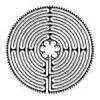-
Welcome to Celiac.com!
You have found your celiac tribe! Join us and ask questions in our forum, share your story, and connect with others.
-
Celiac.com Sponsor (A1):
Celiac.com Sponsor (A1-M):
-
Get Celiac.com Updates:Support Our Content
Do I Really Need To Know What I Have?
-
Get Celiac.com Updates:Support Celiac.com:
-
Celiac.com Sponsor (A17):
Celiac.com Sponsor (A17):
Celiac.com Sponsors (A17-M):
-
Recent Activity
-
- xxnonamexx replied to xxnonamexx's topic in Post Diagnosis, Recovery & Treatment of Celiac Disease30
My journey is it gluten or fiber?
Is there a digestive enzyme that helps build a healthier gut? I see people taking them but not sure what really works -
- trents replied to jenniber's topic in Celiac Disease Pre-Diagnosis, Testing & Symptoms7
Disaccharide deficient, confusing biopsy results, no blood test
So the tTG-IGA at 28 is positive for celiac disease. There are some other medical conditions that can cause elevated tTG-IGA but this is unlikely. There are some people for whom the dairy protein casein can cause this but by far the most likely cause is celiac disease. Especially when your small bowel lining is "scalloped". Your Serum IGA 01 (aka, "total... -
- jenniber replied to jenniber's topic in Celiac Disease Pre-Diagnosis, Testing & Symptoms7
Disaccharide deficient, confusing biopsy results, no blood test
hi, i want to say thank you to you and @trents . after 2 phone calls to my GI, her office called me back to tell me that a blood test was “unnecessary” and that we should “follow the gold standard” and since my biopsy did not indicate celiac, to follow the no dairy and sucraid diet. i luckily have expendable income and made an appt for the labcorp blood t... -
- JoJo0611 replied to JoJo0611's topic in Post Diagnosis, Recovery & Treatment of Celiac Disease2
-
- Samanthaeileen1 replied to Samanthaeileen1's topic in Post Diagnosis, Recovery & Treatment of Celiac Disease7
Thoughts? Non-endoscopic Celiac diagnosis in two year old
Okay that is really good to know. So with that being positive and the other being high it makes sense she diagnosed her even without the endoscopy. So glad we caught it early. She had so many symptoms though that to me it was clear something was wrong. yeah I think we had better test us and the other kids as well.
-




Recommended Posts
Archived
This topic is now archived and is closed to further replies.